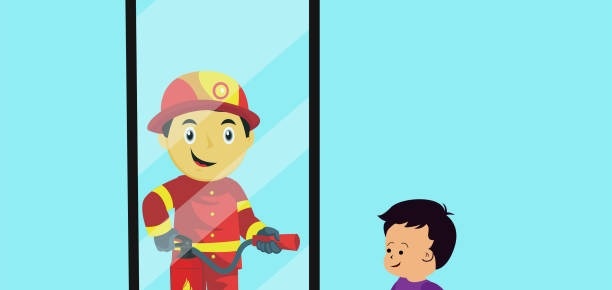A video surfaced on social media of a mechanic Father who asked his son to identify spanners of different sizes. The son would be about four years old and already at home with mechanical tools their names and their functions. “Quite impressive! At four? He should be in school“...Different thoughts and opinions trailed the video.
Every child will learn but, not at the same time and pace
Recently at home, we engaged the services of a hairdresser to help get the twins ready for school for the following week only to be pleasantly surprised. She has a fourteen-year-old son who is not in school. Why so? It turns out that at age eleven, mother and son had the one conversation that changed the trajectory of the boy’s life eternally. It appeared like he was not learning from school and I cannot continue to waste money, so, I asked him to learn a trade and he chose carpentry. Why would he be in school if he is not going to use what he learns from school? No problems. Please send your son over, we need him to fix some things around the house.
It’s midweek. Enter Tobi with another boy in tow. Isn’t it disrespectful to bring someone along when you’ve barely been to a home? Quick apologies with brief introductions- Ma, this is Ayo, my apprentice. Jaws dropped. Eyes wide open. Pin drop silence. At fourteen! not only is he good at what he does but he also has a follower. Brings to mind one time when we were on volunteer duties in a primary school around Yaba-Lagos. I was assigned a set of primary five students. One of the boys was a bit withdrawn when we talked about going to secondary school and what profession he’d want to take on. On inquiry, we found out that he was already a tailor and the school uniform he was wearing was sewn by him. Wait! a Primary five pupil? What happened? He always got home before his folks and so just wandered around the block. His parents sought ways to keep him engaged after school, out of sheer ‘school work should be school work’ mindset, they decided to get him enrolled into learning tailoring from the tailor just by their block. This happened while he was in primary four. Well, now he is a seamster at such a tender age, also doing well in school…. Actually in the running for school prefect.
The formative years
Between the ages of 1-10 are the years of discovery and learning. Most of the football stars and highly effective people in their chosen vocations started early usually between 5 and 10 years of age. They begin to manifest in their teenage years, little wonder sportsmen get launched to the stage between the ages of 14-17 and retire from the sports in their early to mid-thirties. Do they forego secular education? Absolutely not! They gain the highest possible level of education within their vocation. What’s even more amazing is the level of proficiency they gain in other endeavours so much so that one would begin to imagine a possible dominance should they have opted for the alternative forgone. To think that non-formal education is in any way inferior to formal education is very disillusioned.
A good education system would always make room for the entry of those who have gained informal education prior. It will always take cognizance of the level/stage of development, present educational needs (presentation skills, understanding of contracts, further development or acquaintance with new innovation, etc.).
Tobi is set to go back to school, he has chosen technical secondary school. He wants to learn how to make presentations to his clients, calculate properly because he has found out he shortchanges himself sometimes. The little boy who was in primary five is now in a tertiary institution. He practically funds his education by himself.
What is baffling is that such a basic sense in children’s education is not exhibited by the rich and affluent. The lower middle class seems not to have a problem with quickly aligning with the educational strength of their wards. They are quick to take advantage of what ‘little’ provisions the government makes. They somewhat aim for a balance between affordability, child’s prowess and an easier route into the labour market. They master the blue-collar jobs very early on and depending on their ability to develop their minds beyond mere money-making, their transition into the higher rung of the social ladder is usually phenomenal.
In a country, where our rich men are merchants of rice and other basic needs of the common man and not necessarily creators of goods and services that will improve the quality of living but prey on the numbers (large population) to make a living; we must begin to look towards creating an environment which enables education via varying routes. The resultant effect would be a steady organic growth of the economy through the creation of goods and services that will affect both the GDP and the standard and quality of living.
A system that does not set up blue collar jobs as inferior, nor presents the practitioners as second-grade citizens who have taken to their jobs as a result of some disadvantage. Alternative education is the way to go if indeed no child is to be left behind.












Comments